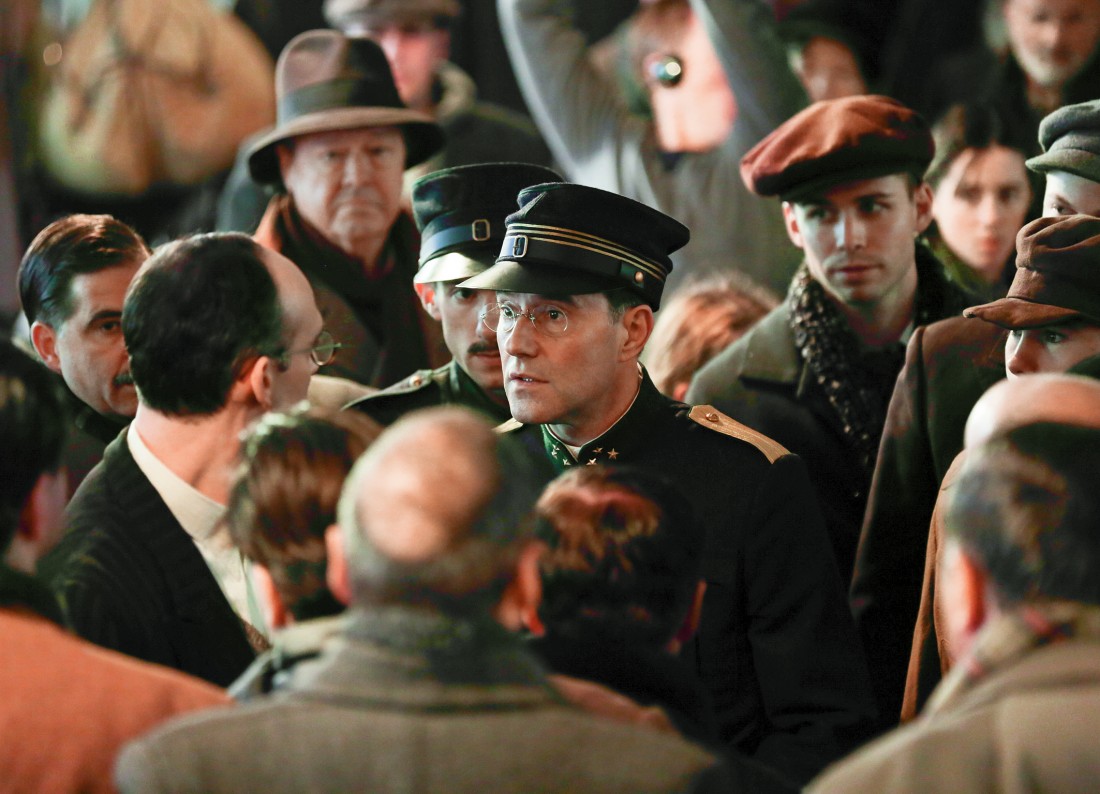Paul Gruninger was the Oskar Schindler of Switzerland.
Instrumental in saving the lives of 3,60o Austrian Jews from 1938 to 1939, he was the police commander of the St. Gallen district, near Austria and Germany. Alain Gsponer’s absorbing movie, The Gruninger File: One Step To Freedom, is based on real events. Now available on the ChaiFlicks streaming platform, it skillfully recounts his exploits as a Good Samaritan.
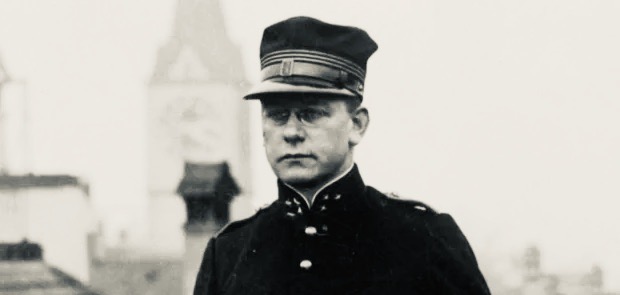
A pious Christian, he believed that helping Jews in their hour of duress was nothing less than a question of humanity. After Nazi Germany annexed Austria in 1938, a wave of Austrian Jews poured into neutral Switzerland, much to the consternation of the Swiss government. To staunch the flow, Switzerland imposed a new restriction, allowing in only refugees with Swiss visas. To ensure this rule was strictly followed, Switzerland persuaded Germany to mark the letter J (Jude, or Jew) in the passports of German Jews.
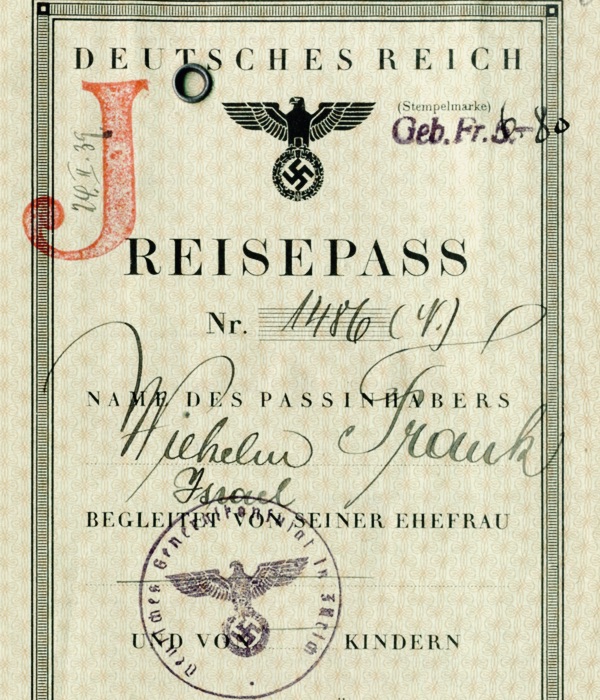
The film starts in the spring of 1939, when a Swiss police inspector named Robert Frei (Max Simonischek) is charged with investigating allegations that Gruninger (Stefan Kurt) has been letting in Jews, or “illegals,” and changing the entry dates in their documents.
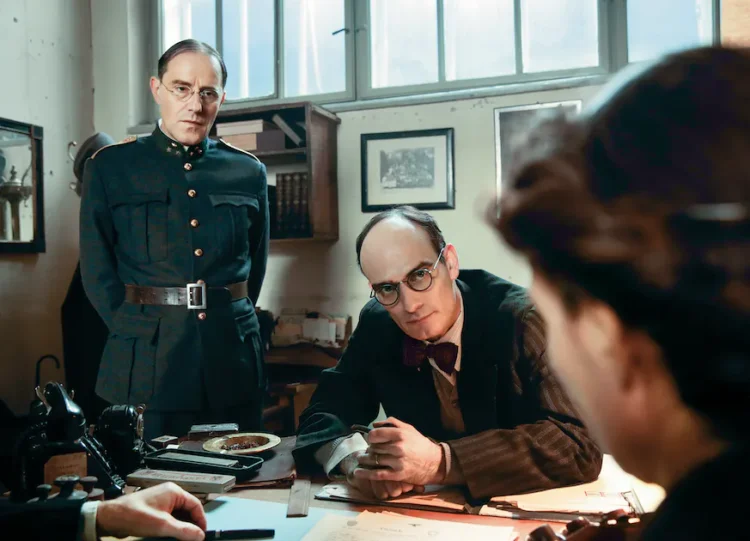
The new arrivals are housed in a camp in St. Gallen managed by Sidney (Sigi) Dreifuss (Anatole Taubman), a Jewish community leader who works hand in hand with Gruninger and Valentin Keel (Helmut Fornbacher), a member of the local branch of the Social Democratic Party.
Gruninger, a family man who dotes on his wife and daughter, makes no secret of his sympathies. At a meeting during which one cruel Swiss official compares Jews to rats, Gruninger says that every refugee should be admitted into Switzerland.
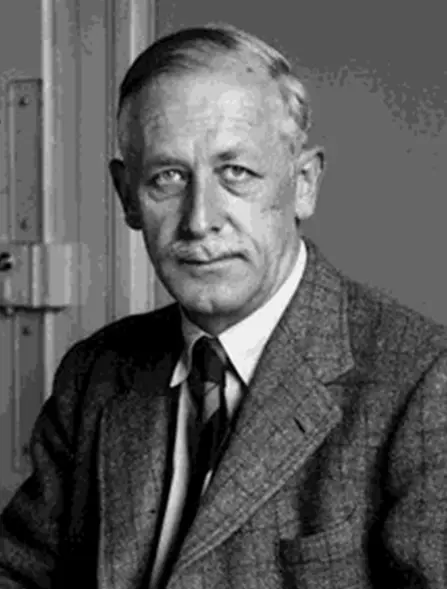
His boss, Heinrich Rothmund (Robert Hunger Buhler), disagrees. Ten thousand refugees already have entered the country, and officials run the risk of inflaming antisemitism if more Jews are let in, he argues. It is a self-serving argument, as Gruninger knows.
As these developments unfold, Frei reprimands a Jewish “illegal” and former Dachau concentration camp inmate who refuses to return to Germany. “Do you hate Jews so much?” Gruninger asks Frei, who is actually conflicted by Switzerland’s policy.
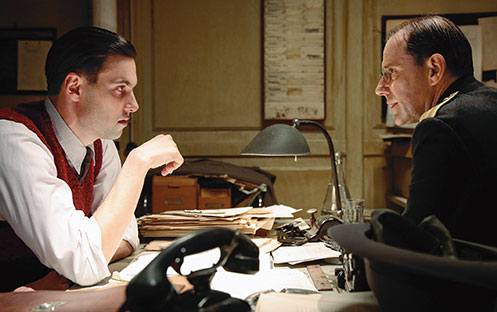
In two subsequent scenes, a Jewish woman jumps off a bridge into a river when confronted with the threat of being repatriated to Germany, and a kind Swiss border guard reconsiders his position and allows a couple with a baby into Switzerland.
Gruninger’s wife, Alice (Ursina Lardi), is unaware of his private humanitarian mission, at least until she accompanies him to the camp where refugees are housed and fed.
Gruninger, having been falsely accused of having sexual relations with some of the women he helped, was dismissed from his job after being convicted of abuse of office and document forgery. He died in poverty in 1972, a year after Yad Vashem, the Holocaust memorial in Jerusalem, recognized him as a Righteous Gentile.
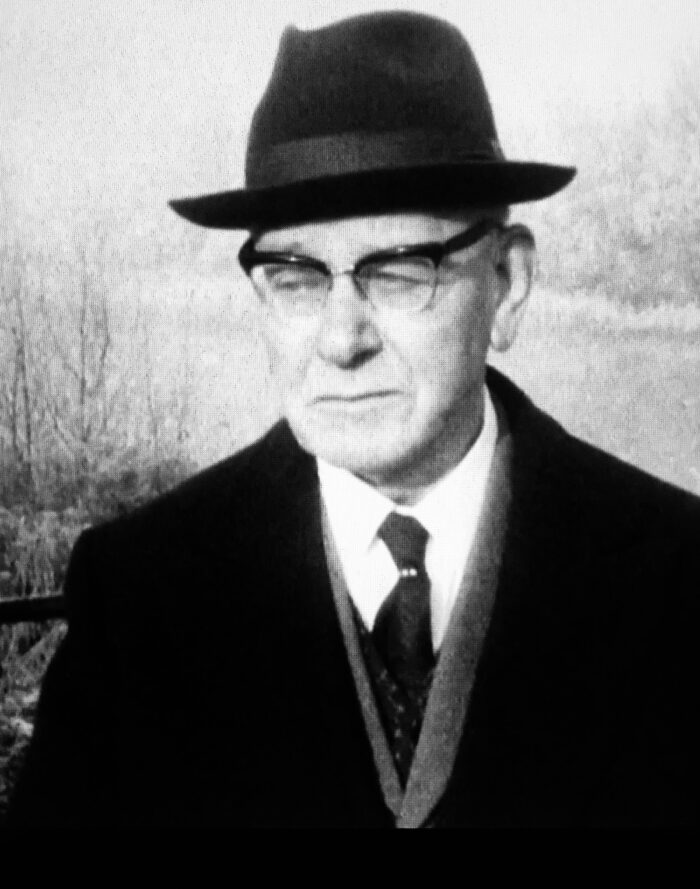
Switzerland, fearing a German invasion, turned away 30,000 Jewish refugees from 1939 to 1945. But thanks to unsung humanitarians like Gruninger, thousands of Jews found a refuge in Switzerland.
The Gruninger File: One Step To Freedom conveys that point with clarity and empathy.
